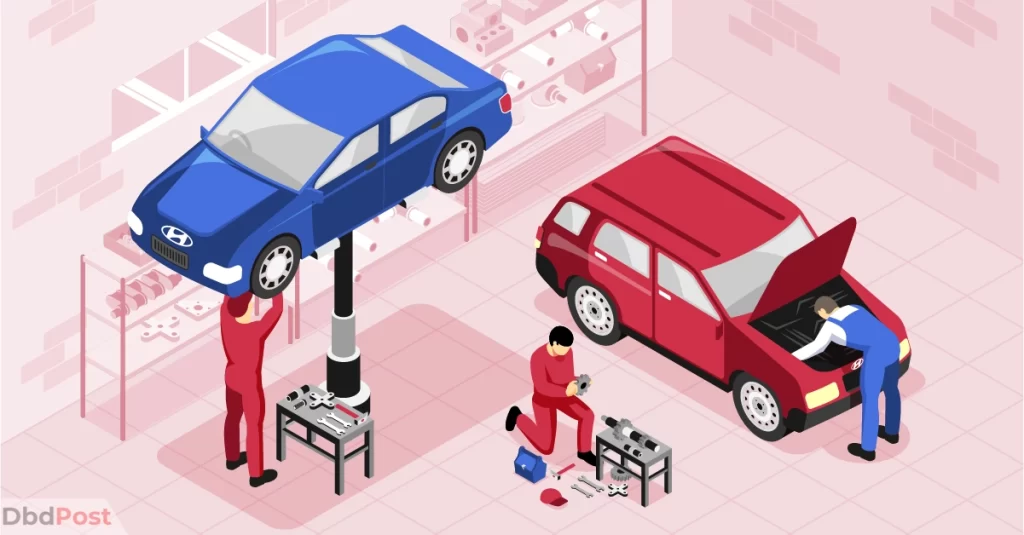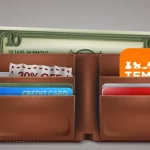Regular tune-ups are essential to keep your Hyundai running smoothly and reliably. Regular maintenance prevents more costly repairs down the road and ensures that your vehicle performs at its best.
A Hyundai tune up cost ranges between $54 to $1682, depending on the model and location of the service center. Air filters, spark plugs, and O2 sensors should be inspected or replaced every 5,000 miles or 6 months.
In this Dbd guide, we have included all the information on the price and components of Hyundai maintenance cost.
What is a Hyundai tune-up?
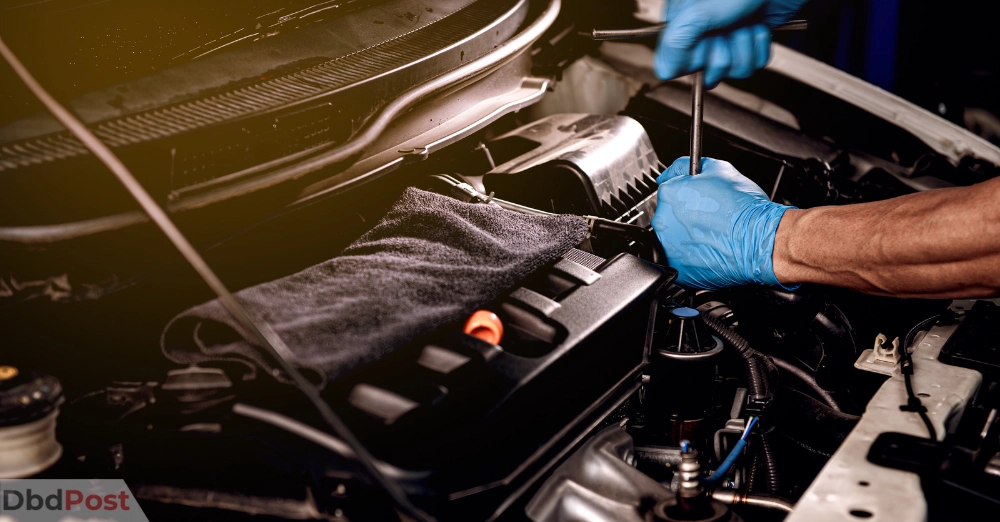
A Hyundai tune-up is a routine maintenance check that helps keep your vehicle running smoothly and efficiently.
During a tune-up, various vehicle components are inspected and replaced if necessary. Usually, items include spark plugs, air filters, fuel filters, PCV valves, and oxygen sensors.
A tune-up is crucial for maintaining the performance and efficiency of Hyundai vehicles.
Here are some of the reasons why tune-up is required:
- To improve engine performance and fuel efficiency
- Preventing engine misfires and improving acceleration
- For boosting engine efficiency
- Enhancing fuel economy and handling
- To prevent engine damage and extend vehicle life
- To identify potential problems before they become major issues
- For saving money on fuel and car maintenance costs in the long run
Components of a Hyundai tune-up
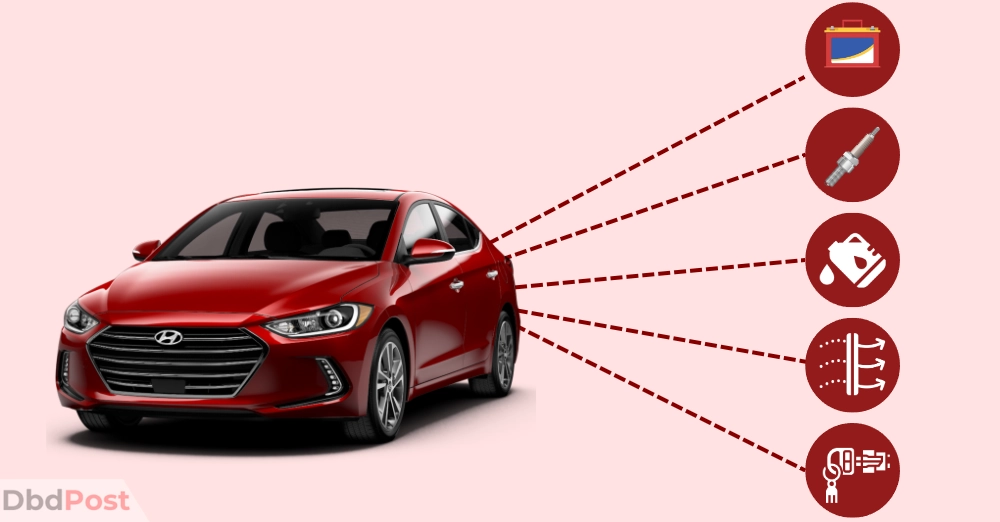
The specific components of a tune-up can vary on the make and Hyundai models. Also, it depends on the age and condition of the engine.
Similarly, here is a list of some common components included in a Hyundai tune-up:
Air filter: This component prevents dirt and waste from entering the engine. In every 12,000 to 15,000 miles, it should be changed.
Fluids: These include engine oil, transmission fluid, and brake fluid. Fluids should be changed at regular intervals to ensure optimal performance.
Engine oil: This lubricates the engine, reduces friction, and you should change them every 5,000 to 7,500 miles.
Fuel filter: This component removes contaminants from the engine oil and should be replaced with every oil change.
Spark plug: The spark plug ignites the fuel in the engine and should be replaced every 30,000 to 60,000 miles.
Ignition wire: This transmits the spark from the distributor to the spark plug and should be replaced if damaged or worn out.
Battery: It provides power to the electrical system and should be tested and replaced if necessary.
Average cost of a Hyundai tune-up
The average Hyundai tune-up cost range from $54 to $1,682, including parts and labor.
| Components (Replacement) | Price Range (Including labor and parts) |
|---|---|
| Brake pad | $211 to $519 |
| Spark plug | $206 to $276 |
| Alternator | $744 to $1,298 |
| Starter | $493 to $530 |
| Fuel Pump | $1,511 to $1,558 |
| Mass airflow sensor | $222 to $286 |
| Fuel Filter | $226 to $263 |
| Ignition coil | $175 to $787 |
| Catalytic convertor | $663 to $1,682 |
| Air Filter | $54 to $74 |
The Hyundai tune-up pricing may depend on different factors. These factors include the age and condition of your vehicle, the type of parts used, and the location of the service center.
If your car is older or damaged, you may have to spend more on a tune-up because of additional repairs or replacement parts.
Moreover, the quality of the parts used also affects the overall cost of the Hyundai tune-up.
Similarly, the cost of getting your car serviced can differ depending on the location of the service center.
Different areas have varying prices due to local factors like labor and service costs, so it’s worth shopping for the best deal.
Can a car warranty lower the Hyundai tune-up cost?
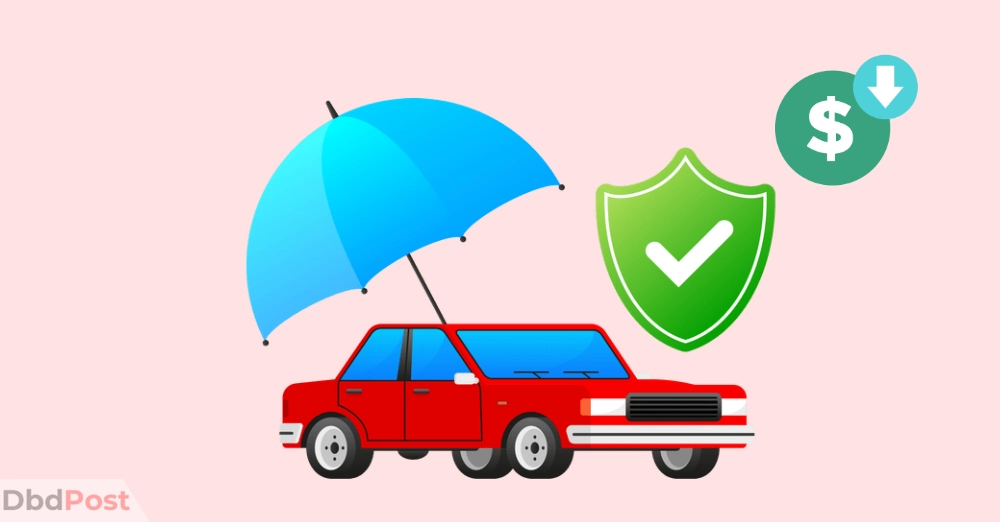
A Hyundai extended warranty plan covers car repairs and breakdowns beyond the factory warranty. It can be obtained from the Hyundai dealership or third-party provider.
Extended car warranties protect you from inflation as car repairs and parts cost continues to rise. They allow you to pay for repairs in small monthly installments, helping you avoid taking out a loan or draining your savings.
Moreover, various extended auto warranty companies offer roadside assistance, towing, and rental reimbursement benefits. The extended car warranty also has trip interruption coverage, which can help you deal with repairs more efficiently.
How often should I get a Hyundai tune-up?

The Hyundai maintenance plan depends on its model, driving conditions, and the manufacturer’s recommendations.
Some Hyundai models may need more tune-ups than others, particularly those with high mileage or older vehicles. Tune-ups may be less frequent for newer models or those with lower mileage.
Various engine tune-up tips the company gives include: [1]Hyundai, “Maintenance tips, https://www.hyundai.com/in/en/connect-to-service/maintenance/tips-and-advice/maintenance-tips#:~:text=Checking%20the%20engine,washer%20fluid%20reservoir.”
Checking the engine oil level
To check your Hyundai vehicle’s engine oil level, ensure the car is parked on a level surface. Start the engine and wait for it to reach its average operating temperature. Then, turn off the engine and give it a few minutes for the oil to settle back into the oil pan.
Once you’ve waited about five minutes, pull out the dipstick and wipe it clean. Re-insert the dipstick fully, then pull it out again to check the oil level.
The oil level should be between the markings labeled F and L on the dipstick. If it’s close to or at the L marking, add enough Hyundai engine oil to bring it up to the F marking.
Remember never to overfill and always use the recommended engine oil for your Hyundai vehicle.
Checking the brake fluid level
Ensure the vehicle is parked on level ground to check and add brake fluid. Look at the side of the reservoir and ensure that the fluid level is between the MAX and MIN marks.
Before opening the reservoir cap, clean the area around it to avoid contaminating the brake fluid.
If the brake fluid level is low, add fluid to the MAX level. As the brake linings wear out, the fluid level will decrease. This is normal and expected.
However, if the level is excessively low, it could indicate a problem with the brake system, and it’s important to have it checked by a certified Hyundai dealer.
Remember to use only the specific brake fluid recommended for your vehicle to ensure optimal performance and safety.
Maintaining the Coolant Level in Your Car
To ensure that your car’s cooling system is working properly, it is essential to check the coolant level regularly.
When checking the coolant level, ensure the engine is cool and not operating. Attempting to remove the radiator cap when the engine is hot can cause severe burns.
The coolant level should be between the F (MAX), and L (MIN) marks on the side of the coolant reservoir.
If the level is low, add the specified coolant to protect the engine against freezing and corrosion. Be careful not to overfill the reservoir, but bring the level up to the F (MAX) mark.
Checking the power steering fluid level
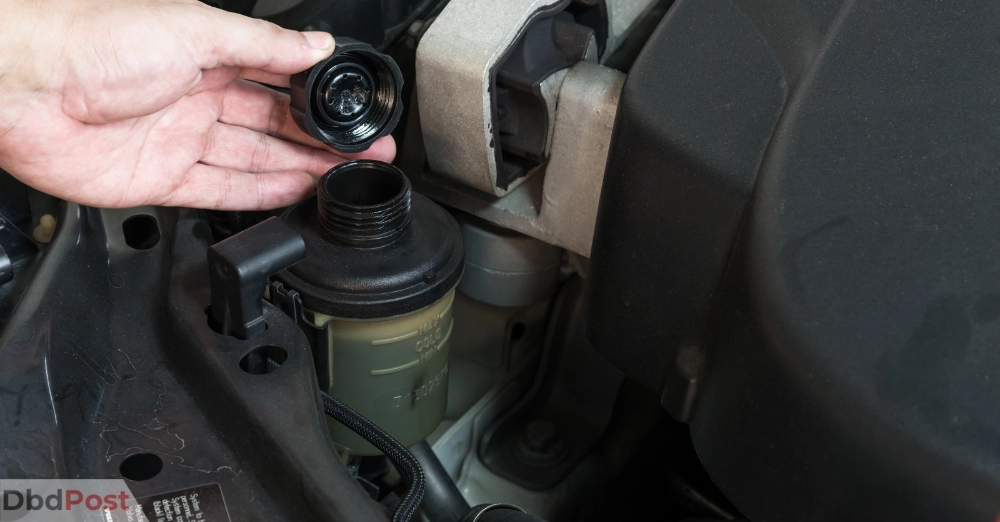
Ensure your vehicle is parked on a level surface to check your power steering fluid level. Locate the power steering reservoir and look for the MAX and MIN marks on the side of the container.
The fluid level should be between these marks when the engine is at average operating temperature.
If the fluid level is low, add more power steering fluid to reach the MAX level. Use only the type of power steering fluid specified in your owner’s manual.
Never use any other fluid type during vehicle inspection, as it can damage your power steering system.
By checking power steering fluid regularly, you can help ensure your vehicle’s steering is operating smoothly.
Checking the washer fluid level
To ensure proper visibility while driving, checking and maintaining the washer fluid level in your car is essential.
You can easily do this by visually inspecting the translucent reservoir and adding fluid as needed. If you don’t have washer fluid, plain water can be used as a substitute.
However, in colder climates, using a washer solvent with antifreeze characteristics is crucial to avoid freezing.
NOTE: Do not use radiator coolant or antifreeze in the washer fluid reservoir.
Related Stories
- Find out everything about Honda Tune Up Cost with our guide.
- Check this guide to know everything about Nissan Tune Up Cost.
- Check this guide on Hyundai Check Engine Light – here.
- Find out everything about Dodge Check Engine Light with our guide.
- If your Volkswagen Check Engine Light is on, check our guide for steps to fix it.
FAQs
Does the cost of a Hyundai tune-up vary depending on the model and year of the car?
Yes, the tune-up prices for Hyundai vary depending on the model and year of the car. The Hyundai maintenance cost ranges from $54 to $1,682.
What are the signs that indicate my Hyundai needs a tune-up?
You may need a tune-up for your Hyundai if you notice rough idling, decreased fuel efficiency, or a lack of power during acceleration.
Other signs may include engine misfires, unusual engine sounds, or the check engine light coming on.
Will a Hyundai tune-up improve my car’s fuel efficiency?
Yes, Hyundai tune-up can improve fuel efficiency by replacing worn parts, cleaning the engine, and fixing issues.
To conclude, regular engine tuning can save money on future Hyundai tune up cost and help your vehicle perform at its peak.
We hope our guide has provided you with all the necessary information you need to know about Hyundai tune-up expenses.
- 107shares
- Facebook Messenger
About the author
DbdPost Staff is a team of writers and editors working hard to ensure that all information on our site is as accurate, comprehensive, and trustworthy as possible.
Our goal is always to create the most comprehensive resource directly from experts for our readers on any topic.
